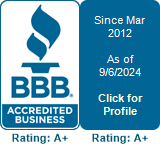Identity Theft has become a major problem in the US but there are different problems associated with different kinds of ID theft. Identity theft of your credit card or bank information has a different effect on you than someone filing false documents on your behalf with the IRS.
Someone could steal your identity in order to file false documents under your social security number to avoid detection for fraudulent labor practices. Or, someone could steal your identity in order to file false tax returns with your social security number to get your refund.
But, more often, there is some kind of human error which has caused documents to be mismatched with social security numbers and the situation is not theft at all. It's an innocent mistake.
The effect on you depends on which false or incorrect document was filed with the IRS. It could be a return or an income statement, an information document or a credit claimed. But, not every false document filed with the IRS is considered Identity Theft.
These are examples of items NOT considered ID theft:
- Your spouse or ex-spouse signs your name fraudulently.
- Your spouse or ex-spouse induces you with duress or fraud to sign a return.
- Your spouse, ex-spouse or relative falsely claims your children as dependents.
- Your job or previous job gave you an incorrect wage or income statement & reported it to the IRS.
Tax-Related Identity Theft
The IRS taxpayer guide states that
Tax-related identity theft occurs when someone uses your stolen Social Security number to file a tax return claiming a fraudulent refund.
The IRS investigates when someone uses your stolen Social Security number to "file a tax return claiming a fraudulent refund". See Pub 5027. So, they are only concerned when they lose money, not when you lose money. But, usually, you are not actually damaged when someone claims a fraudulent refund because you will (eventually) get your lawful refund.
False Forms 1099MISC
What is more damaging is when, unbeknownst to you, someone uses your social security number in the issuance of a Form 1099MISC to the IRS, showing you made Self-Employment Income. When you don't claim it on your tax return, the IRS will naturally send you a notice demanding payment. But, they won't label it "Identity Theft" and open an investigation. Instead, they leave it up to you to "correct" the statement (which you obviously can't do) or sue them in Court.
So, not every fraudulent document filed with the IRS is investigated as "Identity Theft". Only those where a refund was claimed. This makes the IRS process particularly irritating. Now, your refunds will be frozen and every year the IRS will send you a new "PIN number" for you to place on your tax return.
If you receive a notice from the IRS such as Letter 673C and you know you did not file another return, you might have an Identity Theft Problem. Call the IRS at 1-800-829-1040 and ask them about the particulars of this second filing.
IRS Process
Usually, the process of ID Theft either begins with an IRS investigation (See Letter 4674C, Letter 4281 - data compromise or Letter 6330C) or your request for an investigation. (See Form 14039). They will then send you either Notice CP01 or Letter 5073C. Then, you will not hear from the IRS for a very long time. If you call them they will not release any information to you and they will not send you your "Account Transcripts".
They might periodically send you updates or information about an "Identity Theft Specialist" who will help you through the process. (Letter 5064C)
But, eventually, they will send you Notice CP01A giving you a "Personal Identification Number" to put on your return. You will receive a new notice & a new number every year so watch the mail & keep the IRS advised of any new address you may have (Form 8822).
This "PIN" for returns should not be confused with a "PIN" number you establish to access the IRS online tax transcript service. The IRS will send you a Letter 2940C to give you that information.
You will never know exactly what fraud was perpetuated on your account. The IRS does have a special webpage devoted to ID Theft and they have links to their publications:
Publication 5027 - Identity Theft Information for Taxpayers
Publication 5199 - Tax Preparer Guide to Identity Theft
Summary
In sum, although tax-related ID theft can be very irritating and frustrating you likely will not suffer any financial harm.






